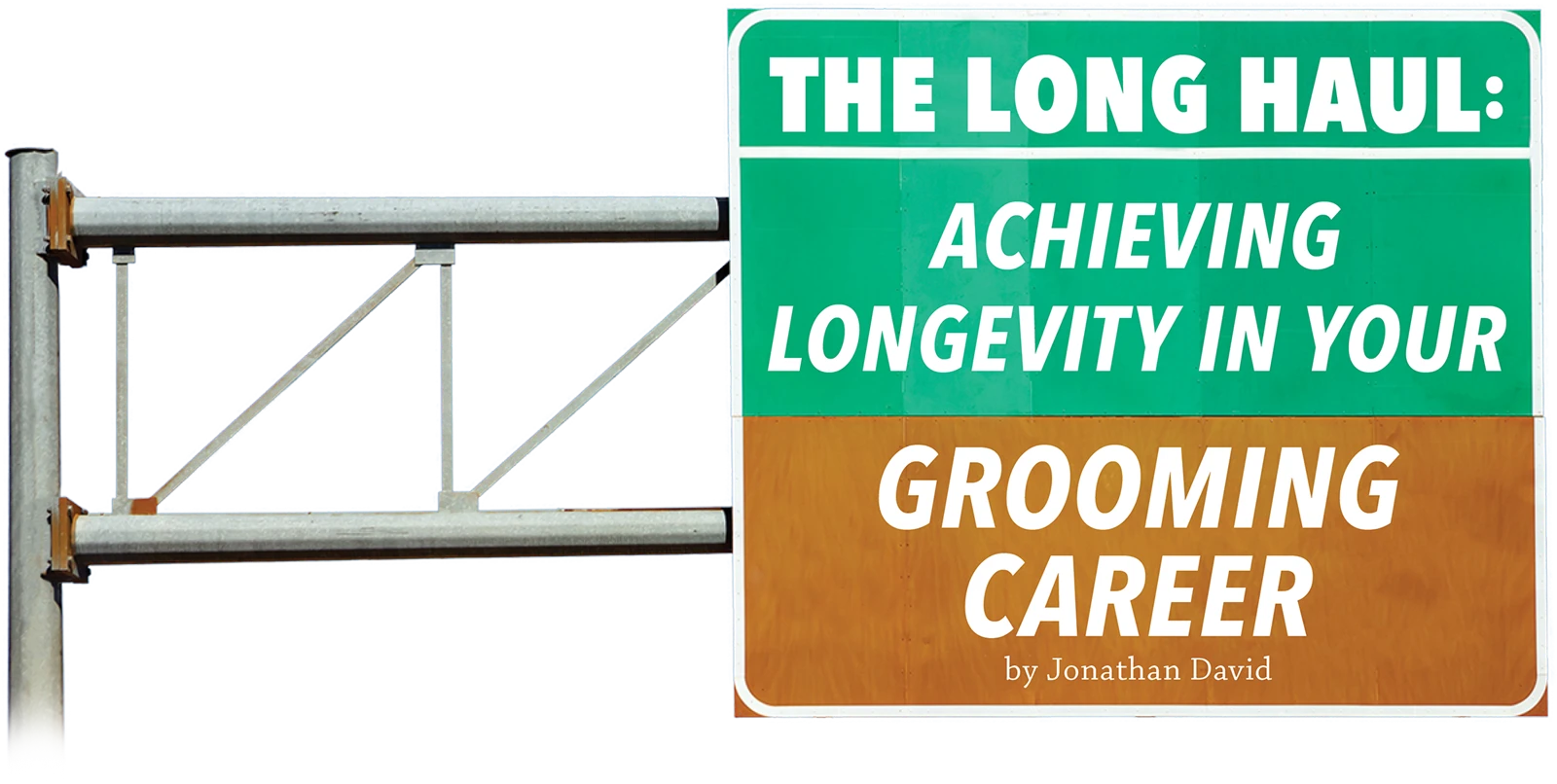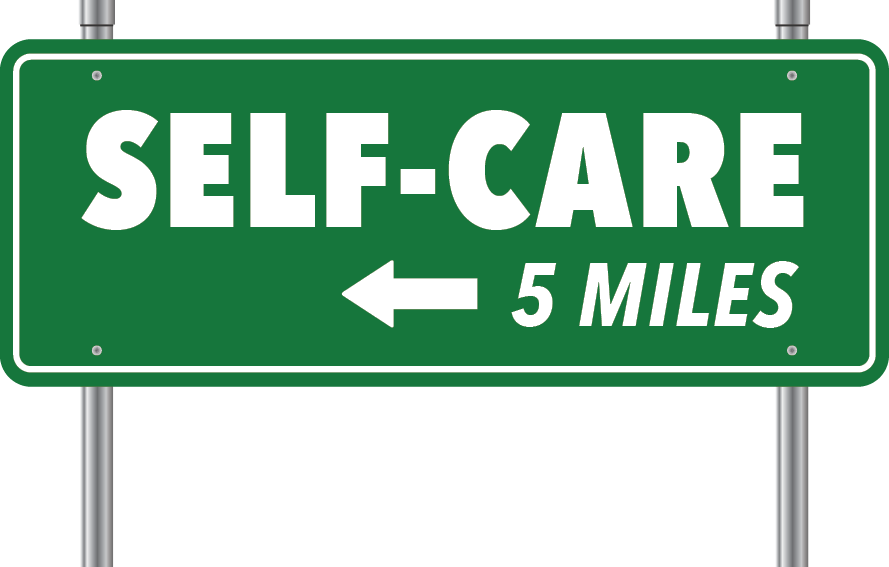
 ’ve been in the pet grooming industry for 34 years, and the longer I’m in this profession, the fewer lifelong groomers I seem to come across. I remember all those years ago when I would meet people for the first time and we’d exchange basic information about ourselves—things like where we lived or what we each did for a living—and I had the occasional experience where somebody would say, “Oh, I used to be a dog groomer…”
’ve been in the pet grooming industry for 34 years, and the longer I’m in this profession, the fewer lifelong groomers I seem to come across. I remember all those years ago when I would meet people for the first time and we’d exchange basic information about ourselves—things like where we lived or what we each did for a living—and I had the occasional experience where somebody would say, “Oh, I used to be a dog groomer…”
I got stuck on the words “used to be,” because upon entering the grooming profession, I hadn’t thought of an expiration date on my career. I invested myself wholeheartedly into this profession and put all my eggs in one basket; this was it, this was the plan. I never once thought about it being temporary nor had I thought about a completely different career path down the road. So, I had to ask them, “Why did you stop?”
The answer was always the same: “I couldn’t physically do it anymore.” I remember the first time I heard that response, it really went to my core. I remember thinking to myself, Will this be me? I didn’t have a plan B; there was no back-up career waiting for me down the road, so I had to make this work for the long haul. I had to figure out a way to avoid having my career become too physically exhausting.
But why is a long career in pet grooming so unique and how do you stay healthy enough to make this a lifelong career?
The answer to this question is quite simple, although it seems to be rather elusive to so many—put yourself first!
When I was in my twenties, I was working full time at a salon in NYC. I made decent money, but it was a salaried position. It was a fair salary for a new employee in a high-paced, upscale salon, but in NYC, it just wasn’t enough for the way I wanted to live. So, I started taking on house-call clients on the side. I would work in the early morning and evening, before and after my full day of grooming in the salon, and I would take a few on weekends as well. As a young and fit guy in my twenties, I had the energy, I had the strength and I thought, Why not?

The pain became almost constant, so I turned to massage therapy. I’d had massages in the past, but it was more of a “spa day;” certainly not anything therapeutic. The massages helped in the short term, but the pain resumed rather quickly, and I kept up the grueling routine of hauling my equipment around. A friend suggested I see a chiropractor, but I scoffed. I was uninformed about chiropractic and had heard it wasn’t a legitimate medical practice. I was wrong. I decided to give it a try as nothing else was working.
Being the skeptic, I refused to say what specifically was hurting in my back. The doctor took an x-ray of my spine and pointed to three subluxations (those are misaligned vertebrae) in the exact spots where I was experiencing pain. I was also losing the curve in my neck which should be there; mine was becoming straight. This was a direct result of carrying an extremely heavy backpack full of grooming equipment on my back and my neck was straining under the weight. I was impressed. Clearly there was a connection to the pain and what he was seeing on the x-ray. So, I signed up for a twelve-week corrective protocol of three adjustments a week combined with weekly deep tissue massage. Within two adjustments there was marked relief for the first time in months. Within two weeks I was almost pain free!
I then worked with my chiropractor to create a better system that would be less taxing on my body. First, I switched from a backpack to a rolling bag. I lightened the load by requiring the clients to keep shampoos in their homes, and this made a huge difference. But, the biggest change was the workload. I made some changes to my schedule, increased prices where necessary to compensate for the lower volume of work, and figured out how to work both massage and chiropractic appointments into my schedule and budget, since they had become a necessity. I learned how to manage my money better so that I wasn’t always feeling like I had to take more appointments. And, I stopped skipping lunch to save some time. Instead, I started fueling my body with that much-needed energy. I even took up yoga for a while, which I realized wasn’t for me, but I was seeking ways to find some calm in the chaos.

Self-care isn’t only about the physical aspect either, being overworked or spreading ourselves too thin can have devastating effects on our mental health as well. Lack of sleep, fatigue and poor nutrition all contribute to depression and feelings of despair. We need time off from work to “check out” and recharge, to spend quality time with friends and family, and to focus on things other than our work.
When I started doing mobile grooming, I read a post in a Facebook group regarding the number of dogs we each typically did in our mobile vans each day. I saw a huge variety of answers—some did five per day, others a few more. I commented that I was able to do a much higher number, and I’ll never forget one of the responses; “Oh, well you’re new to mobile. You haven’t learned yet that just because you can do more dogs doesn’t mean that you should.” As I read that statement, I realized that I was headed down the same path as I was all those years ago in NYC. I was pushing too hard, too much and I was going to pay the price if I wasn’t careful.
Taking care of ourselves, both physically and mentally, so that we can enjoy our careers shouldn’t be such a strange concept, yet so many people put work ahead of health. It’s never too late to start treating our bodies and minds better, and it’s OK to say “no” to that extra dog. Self-care is self-love and we can all use a little extra love. Happy grooming!

